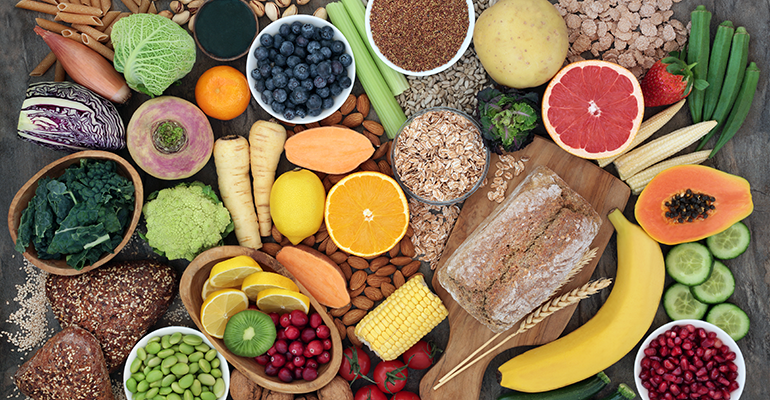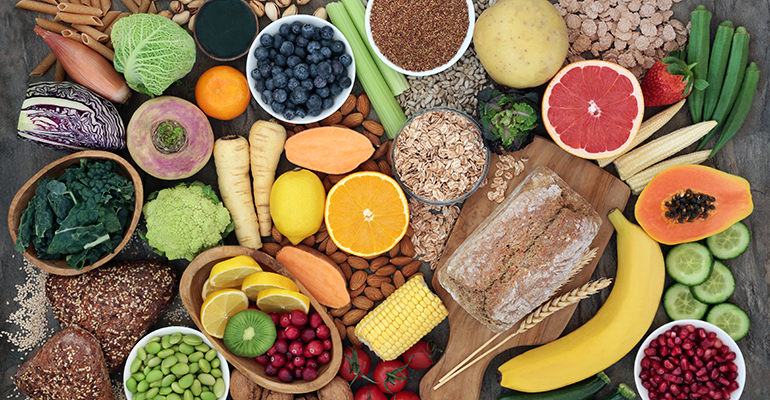news
April 5, 2024
The German Society of Nutrition (DGE) publishes updated dietary guidelines that focus on health and sustainability, with an emphasis on plant-based foods.
The German Society of Nutrition (DGE) presented the latest Food-Based Dietary Guidelines (FBDG) at its 61st Scientific Congress in March 2024.

“The German FBDG aims to outline how health-promoting diets can be implemented in daily life and provide consumers with simple rules of behavior,” a DGE spokesperson said. Ta. component network.
A committee established by the DGE, consisting of scientists in nutrition and related fields, developed the current guidelines based on the DA-CH reference values for nutrient intake and prevention of non-communicable diseases. “Ecological aspects, physical activity, conscious eating and enjoyment were also taken into account,” he said, a DGE spokesperson.
DGE has announced new recommendations on the Eat and Drink Well portal consisting of DGE Recommendations that replace the 10 Rules of DGE and DGE Nutrition Circles. DGE highlights the difference that small changes in a consumer’s daily diet can make, and says these are steps towards a healthier and more environmentally friendly diet. The recommendation applies to healthy adults between the ages of 18 and 65 who eat a mixed diet that includes meat and fish, the DGE said.
Plant-based plays a more important role
According to DGE, a healthy and environmentally friendly diet should consist of at least 75% plant foods and almost 25% animal foods. DGE suggests choosing primarily plant-based foods and consuming more food groups that offer a variety of choices. The guidelines prioritize vegetable fats, such as vegetable oils, over animal fat sources such as butter.
“While the FBDG was developed for healthy German adults who follow an omnivorous diet, which is the most common diet in Germany, it does not provide any guidance to all healthy adults. ” said a DGE spokesperson. DGE added that specific FBDGs for children or vegetarian and vegan meals will follow.
The new dietary guidance states that it is possible for consumers to replace dairy products with plant-based alternatives, as long as they get adequate calcium, vitamin B2 and iodine.
Beans, legumes, and nuts are now recognized as a separate food group, with greater emphasis on plant-based foods. Having a separate category for these foods is a positive step and “recognizes the important role beans and legumes must play in transforming our food system,” Hafner said in a LinkedIn post. mentioned in. But this is “missing the trick,” Hafner added, noting that fungal proteins are not included in the recommendations.
Fruits and vegetables remain the most important food group in terms of quantity. DGE recommends that consumers eat five servings of fruits and vegetables each day. However, the updated guidelines removed additional separate portion information detailing the suggestion to eat three servings of vegetables and two servings of fruit.
FBDG has revised its food-based dietary recommendations for Germany, advising consumers to limit meat intake to 300g per week and reduce dairy intake to three servings per day and two servings per day from the previous recommendation. are doing. The recommended amount of fish is 1 to 2 times a week.
Advocating for the health of consumers and the planet
The new guidelines focus on health and sustainability, highlighting the benefits of plant-based diets for human health and the planet. “If we want to eat healthy and at the same time protect the environment, we need to change our diets now,” says Professor Bernhard Watzl, Chairman of the DGE and Head of the DGE Working Group on Food-Related Nutritional Recommendations. says.
 © AdobeStock/Christian Muller
© AdobeStock/Christian Muller
DGE says that this guideline is a first step towards strengthening health and environmental protection, and that the FBDG will investigate different aspects of nutrition, such as sustainability, environmental impact and the German diet. states that it is aimed at
“The new German food-based dietary guidelines take into account health and sustainability, which are two sides of the same coin and are closely intertwined,” said Tanya Hafner, nutritionist and founder of MyNutriWeb. component network. “They reflect current evidence on the health and planetary benefits of plant-based diets and reflect recent updates from other countries,” Hafner added.
The 2022 research study assessed and benchmarked Germany’s nutrition policy against international best practices. The findings show that Germany lags behind international best practices in several key policy areas, and that adopting global best practices in key policy areas will lead to poor nutrition-related chronic health problems in Germany. It has been shown that it has the potential to help reduce the burden of disease and related inequalities in nutrition and health.
“This will be an important step in shaping consumer behavior, as changes in the food system will use these as a guide,” Hafner says.
A new model behind dietary advice
The German guidelines are based on a new mathematical optimization model developed by DGE and other industry experts. The latest model extends recommendations for healthy eating, reducing the risk of diet-related diseases, minimizing harmful environmental and climate impacts (greenhouse gas emissions and land use), and It takes into account aspects such as normal consumption habits.
“The results of the mathematical optimization model confirm previously valid DGE food-related dietary recommendations that include foods primarily of plant origin, supplemented with a lower proportion of foods of animal origin. ” said a DGE spokesperson.
The industry may be wondering how Germany’s latest nutritional guidelines will impact manufacturers and new product development. A spokesperson said DGE is currently recommending plant-based milk alternatives. In addition, DGE will provide more detailed information on recommendations such as plant-based milk and meat substitutes.

